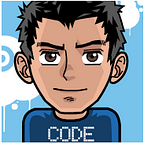Your first language: Part 1
In the previous post, you were introduced to the routes to becoming a Software Developer. Episode I is all about picking a language and learning the basics. Let’s dive into it.
Becoming a Software Developer can be overwhelming and daunting it the beginning. The best way to keep yourself focus is to start little. There are many technologies out there that can be considered hot at the moment. Try to avoid diving into all of them at once. Instead, ask yourself what language you would like to base your career on and make sure you get strong and comfortable with it.
“So, what language should I base my career in?”
For those interested in front end development, JavaScript is your language.
If your preference is the back end, you might want to decide between Java, Python, or Ruby amongst others. If you want to focus your career in mobile development, consider Java or Kotlin for Android development of Swift for iOS. In the industry of gaming, C, C++, or C# might be best to get started.
For data science, SQL, R, and Python are broadly used languages.
You may also be interested in DevOps or Security. Picking a field will help you understand what your first language should be.
Once you have chosen a language, it is important that you find detailed and complete material in that language. Some recommended resources are Udemy, Codewars, Stack Overflow, books, or blogs. Be aware that different sources are complementary and a combination of them will probably be your best bet. For example, Udemy contains complete courses of different levels, Codewars consist of small challenges that will help you gain agility with a language, and Stack Overflow is a useful site to post a question.
Okay, so you have chosen a language and you have a bunch of resources, how do you make the most out of them?
It is essential that you try what you learn by doing. For every new concept that you discover, be sure that you apply it in a personal project or little exercise.
Make an effort to understand all that you write and avoid copying code; this will help you to memorize and assimilate the syntax of the language.
Once you understand and use a new concept, repeat, repeat, repeat so that you are able to potentially use it in the future as a solution to any problem that you may encounter.
If you have followed the steps above and would like to continue with a practical approach to learning the basics of a programming language, stay tuned, and check out the next post.
